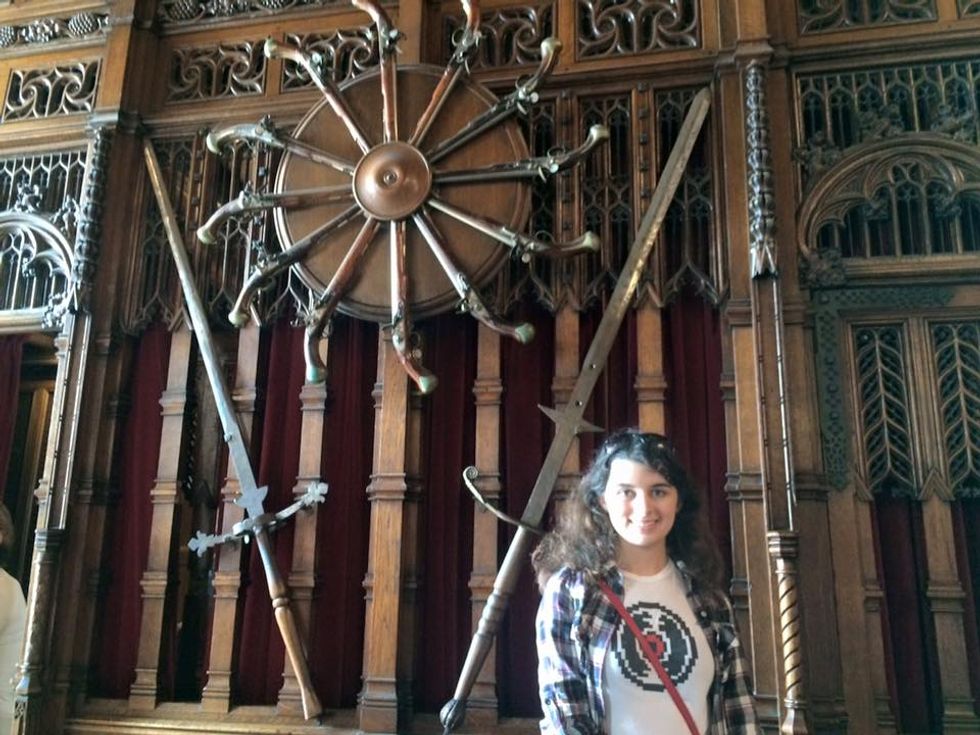Autism Spectrum Disorder (ASD) is a complex neurological disorder that affects a person's ability to interact and communicate with others. As of now, 3.5 million Americans are born with a variation of ASD, so it's likely that you know, whether you're aware of it or not, someone with autism. I'm one of those individuals. I was diagnosed at the age of three, but I didn't find out until I was twelve.
Although I've learned to open up and make my voice heard, I'm still bombarded with misconceptions about my autism. In the spirit of National Autism Awareness Month, here's a list of things that I wish people knew.
1. First and foremost, I'm a person.
I have my own needs, desires, likes, and dislikes. I'm just as human as you are, so please show me the same respect as you'd give anyone else.
2. Stop asking me what it's like to have autism.
I can't say what it's like for everyone with autism because each individual has a unique experience. This is why it's called autism spectrum disorder––there's far too much nuance and complexity in this condition to pin down.
3. Autism affects people from all walks of life.
Autism doesn't have a single face. It doesn't matter whether you're cisgender, transgender, LGBTQ+, a person of color, religious, rich, poor, etc.––autism affects people of all identities. Don't act so shocked when someone other than a cisgender, white, middle-class man tells you about their autism.
4. I can hold lasting friendships and relationships.
Just because I'm a little shy and awkward doesn't mean that I can't make friends. Over the years, I've bonded with so many amazing people, both on and off the spectrum.
5. I'm capable of empathy.
I don't know why people think autistic people can't be empathetic. Empathy is simply the ability to look at someone, see what they're feeling, and then feel it yourself. When I was a kid, I had a lot of trouble telling how other people are feeling through their body language and tone of voice, so this is where I sometimes ran into difficulty. However, I think that I relate too much to the feelings of others. I can't watch videos where someone gets hurt because I can feel that pain.
6. I don't want to be cured.
As a member of the autism rights movement, I believe that autism is a neurological difference that should be respected and accepted like any other human difference. My differences aren't a so-called "epidemic"––they make me part of who I am.
7. Please don't ask other people about MY condition.
If you want to learn more about my condition, talk to me first. Although my family and neurotypical friends know that I'm autistic, they haven't lived it. The best source about autism, like any other marginalized population, is to go to the source.
8. I'm not a savant.
Even though autistic savants do exist, only 1 in 10 autistic people fall under that category. I have a wide variety of interests and hobbies, but I don't consider myself exceptionally good at them. I'm not a mathematical genius and I have the musical ability of a lamp. And honestly, I'm okay with that. In short, this myth simply isn't true.
9. Sometimes, I need a bit of space.
I do care about you, I promise. The world can be a painful and overwhelming experience, so I need some time to decompress before I go on with my day.
10. I'm autistic.
Not a "person with autism." Not a person "suffering" from autism. I'm autistic. It's not negative to say that I have a neurological difference, it is a fact. My disability is a huge part of my identity and how I experience the world. To me, person-first language implies a degree of shame of my disability. We don't say, "a person with blackness" or "a person with trans manliness", or "a person with Jewishness." So why should we use it for disabilities?
However, people on the spectrum do have their preferences of person or identity first language, so I suggest asking what they want to be called.


















